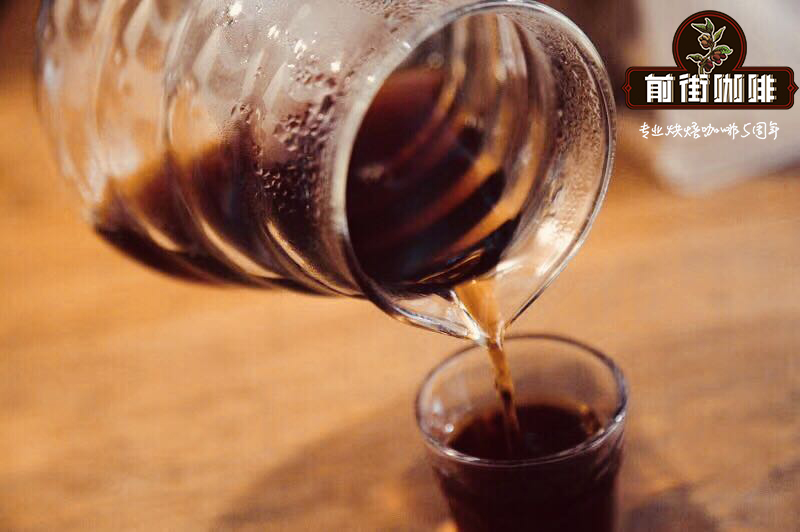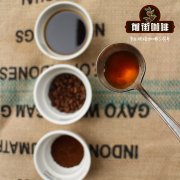Where do African coffee beans come from? what's the taste of Kenyan beans?

Professional coffee knowledge exchange more coffee bean information please follow the coffee workshop (Wechat official account cafe_style)
A brief introduction to the characteristics of Kenyan Coffee producing area in Qianjie-African Coffee producing area
Kenyan coffee is famous for its distinct and complex taste, with distinct fruit flavors, especially berries. At the same time, most Kenyan coffee has a sweet flavor and pleasant acidity.
Kenyan coffee is grown by large estates or small farmers, whose coffee is harvested and sent to the local wet treatment plant, which makes it easy to get beans from a single farm. Coffee beans from specific wet treatment plants are usually marked with particle size grades, but the same batch of coffee beans may come from hundreds of small farmers.
Kenya, like most coffee-producing countries, classifies coffee beans according to their size. Because to some extent, the size of coffee beans has something to do with the quality of coffee, but it is also common for AB or PB coffee to be better than AA coffee.
Origin: Kenya
Production area: Jinchu Valley, east of Kirinaga.
Processing plant: Kagu Yoni
Variety: SL28/SL34
Altitude: 1600 to 1750
Process: double fermentation
Kilinaga is the name of the highest mountain in Kenya. Jinchu Valley is located to the east of Kirinaga. Jinchu Valley is a production area composed of local small farmers. After the harvest of local coffee farmers, the fruit is sent to the Jiagu Uni water treatment station in the production area and other cooperative water treatment stations for post-treatment.
There are many methods of water treatment. Double fermentation is a more common way of water treatment in Kenya. Compared with ordinary water washing treatment, double fermentation is divided into two washing steps. The first step is the same as ordinary water washing treatment. After peeling, the peel is soaked in a wet fermentation tank. 24 hours, water is released for cleaning, and then enter the second fermentation step to continue soaking fermentation. However, an additional water change operation is required during the second soaking in order to prevent the water from being soaked for too long and the coffee beans to stink, so it is more water-consuming and more expensive.
Because there are two steps of wet fermentation, hence the name double fermentation, after a clear understanding of the principle, double fermentation will not feel that double fermentation is a very mysterious treatment. The purpose of one more wet fermentation is to increase the softness of taste and the complexity of flavor on the basis of single washing.
After the double fermentation of Jiagu Uni water treatment plant, the taste is very sweet, with the sour taste of lemon, and the taste similar to black tea, the latter part will appear weak sweet and sour of small tomatoes, of course, high cleanliness is the most basic.
In short: Qianjie is a coffee research hall, happy to share the knowledge about coffee with you, we share unreservedly just to make more friends fall in love with coffee, and there will be three low-discount coffee activities every month. The reason is that Qianjie wants to make more friends drink the best coffee at the lowest price, which has been Qianjie's tenet for 6 years!
END
Important Notice :
前街咖啡 FrontStreet Coffee has moved to new addredd:
FrontStreet Coffee Address: 315,Donghua East Road,GuangZhou
Tel:020 38364473
- Prev

Introduction of Coffee producing areas in Central America does Costa Rican coffee taste sweet
Professional coffee knowledge exchange more coffee bean information please follow the coffee workshop (Wechat official account cafe_style) Front Street-Costa Rica Coffee introduction Costa Rica is located in Central America, the climate and soil conditions are very suitable for coffee growth, with a history of two hundred years. In recent years, Costa Rica conforms to the market trend and makes great efforts to develop high-quality coffee. Do
- Next

What are the coffee-producing countries in Africa? what is the grading system of Kenyan coffee beans?
Professional coffee knowledge exchange more coffee bean information please follow the coffee workshop (Wechat official account cafe_style) front street-African coffee producing area Kenya coffee grade brief introduction many coffee producing countries in Africa, more famous in the world are (Republika yu Rwanda) Ethiopia (Ethiopia) Kenya (kenya) and other countries. Front Street has always liked Kenny.
Related
- Beginners will see the "Coffee pull flower" guide!
- What is the difference between ice blog purified milk and ordinary milk coffee?
- Why is the Philippines the largest producer of crops in Liberia?
- For coffee extraction, should the fine powder be retained?
- How does extracted espresso fill pressed powder? How much strength does it take to press the powder?
- How to make jasmine cold extract coffee? Is the jasmine + latte good?
- Will this little toy really make the coffee taste better? How does Lily Drip affect coffee extraction?
- Will the action of slapping the filter cup also affect coffee extraction?
- What's the difference between powder-to-water ratio and powder-to-liquid ratio?
- What is the Ethiopian local species? What does it have to do with Heirloom native species?

